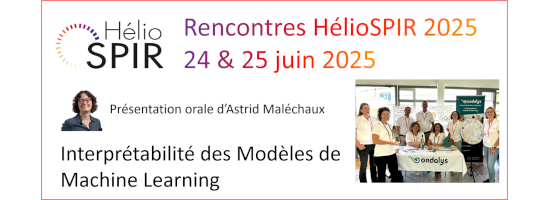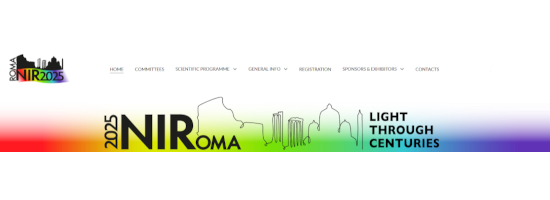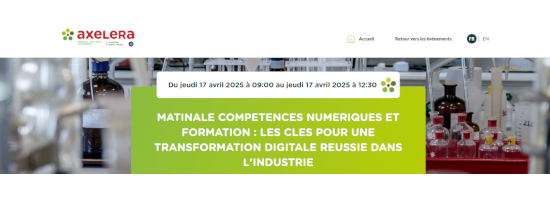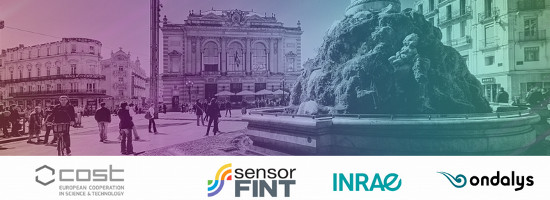
Inscrivez-vous à ChemSchool,
l’école de Chimiométrie organisée
dans le cadre du COST SensorFINT .
Cette école de Chimiométrie organisée conjointement par SensorFINT, l’INRAe et Ondalys, en Septembre sur le site du Lazaret à Sète, vous propose d’assister à des formations avancées à la Chimiométrie. Ces sessions de formations seront dispensés par des experts européens en chimiométrie.
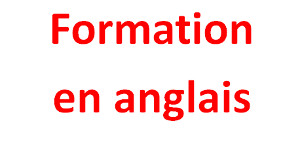
Objectifs de ChemSchool
Cette formation à l’analyse de données multivariées s’adresse aux personnes souhaitant :
- Approfondir leurs connaissances en analyse de données spectrales
- Acquérir des compétences en calibration linéaire et non linéaire
- Pratiquer sur des données réelles avec différents logiciels de chimiométrie
- Devenir autonome dans la gestion de leurs données spectrales
La session de formation propose alternativement des principes théoriques de la méthode et des exercices pratiques utilisant le logiciel ChemFlow, avec la possibilité d’utiliser également les boîtes à outils Matlab®, Scilab, R et Julia.
![]()
 Durée
Durée
4 journées – 28 h
du 5 Septembre 2022 – 14h au 9 Septembre 2022 – 14h
 Public
Public
Docteurs, Post-doctorants
Ingénieurs, Chercheurs
 Données
Données
Tous types de données spectrales NIR, MIR, RMN, Raman …
R&D, suivi de process, instrumentation, …
 Pré-requis
Pré-requis
Cette formation s’adresse à des personnes :
- ayant une bonne connaissance en spectroscopie, habituées à travailler sur des données spectrales
- ayant l’habitude de travailler avec des méthodes factorielles c’est-à-dire capable de développer un PLS, réaliser une ACP, …
![]()
Programme des sessions de formation ChemSchool
Introduction
- Introduction to the tools (ChemFlow)
PCA Theory & application – Tom Fearn – 2 half days
- Classical case (low inter correlation)
- Spectral case (high inter correlation)
- Outlier detection
- Loading interpretation
- Pretreatment selection
Unsupervised Challenge: choosing the best pretreatments, detecting outliers, structure, etc. without any model

Modelling & Validating – Marina Cocchi & Jean Michel Roger – 3 half days
- PLS Algorithm without maths
- Notion of dimension
- Figures of meritTuning of dimension CV
- Modelling workflow
- Preprocessings
- Case studies, including fails
Supervised Challenge: tune the best model, on the data preprocessed in session 2,
test on unknown samples
Discussion
ANN based methods – Federico Marini & Eric Latrille – 1 half day
- Introduction about ANN, self-organizing maps or GTM alternative method
- Application on data set and software
Non-linear Methods – Matthieu Lesnoff – 1 half day
- Local methods
- Application on data set and software
Final Challenge – 1 half day
![]()
Les formateurs experts
Tom Fearn, from UCL – London’s Global University,UK
Tom Fearn is Professor of Applied Statistics in the Department of Statistical Science at UCL in London. His main research area is chemometrics, and in particular its applications to quantitative calibration and classification problems in NIR spectroscopy. He received the Tomas Hirschfeld award for contributions to NIRS in 2001 and is Immediate Past President of the International Council for Near Infrared Spectroscopy.
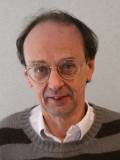
Federico Marini, from La Sapienza Università di Roma, Italy
Prof. Marini completed his PhD in 2004. In 2006, he was awarded the Young Researcher Prize from Italian Chemical Society and in 2012 he won the Chemometrics and Intelligent Laboratory Systems Award “for his achievements in chemometrics”. His research activity is focused on all aspects of chemometrics, ranging from the application of existing methods to real world problems in different fields to the design and development of novel algorithms. He is the past-coordinator of the Chemometric group of the Italian Chemical Society, and currently the vice-president of Italian NIR society and the coordinator of the Chemometric study group of EUCheMS.
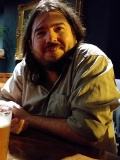
Marina Cocchi from University of Modena and Reggio Emilia, Italy
Marina Cocchi is at present Associate Professor of Analytical Chemistry at University of Modena and Reggio Emilia. She got the PhD degree in Chemical Sciences in 1992 at the same University. Author of more than 100 publications on International Journals and books (H-ind 27, 2246 cit., Scopus). Main research topics: Multivariate, Multi-way and Multiset methods; Data Fusion; Feature selection; MSPC; Food Authenticity; Chemical fingerprinting by spectroscopy (MIR, NIR, NMR) and chromatography; Multivariate calibration; Experimental Design. She is member of editorial Board Chemometrics and Intelligent Laboratory Systems, and of Advisory Board of Comprehensive Chemometrics, Wiley, 2nd Ed.
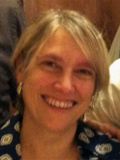
Jean Michel Roger from INRAE, France
Jean-Michel Roger focused is research on the robustness problem. In 2003, simultaneously with Prof. Tom Fearn, he proposed a new generic method called External Parameter Orthogonalization (EPO) which permits to eliminate specific spectral effects from the NIRS calibration and thus to solve certain problems of robustness. He is also involved in the design of portable or online spectrometers using filters technology. In this aim, he developed a method (CovSel) that allows to select wavelengths with regard to multiple responses. He has created ChemHouse, a chemometrics research group, forge of the ChemFlow software (see https://chemproject.org).

Matthieu Lesnoff from CIRAD, France
Matthieu Lesnoff is biometrician at the Selmet (Mediterranean and tropical livestock farming systems) research unit in CIRAD. In chemometrics, he specializes in non-linear prediction methods, in particular on locally weighted PLSR approaches. He is actually in charge of developing a web platform for automated predictions of the composition of tropical forage compositions in CIRAD. He is member of the ChemHouse research group in Montpellier (https://chemproject.org) and has developed several chemometrics free packages in R and Julia languages (rchemo and Jchemo: https://github.com/mlesnoff ).
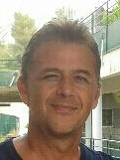
Les encadrants des exercices pratiques sur logiciel

Jean Claude Boulet
UMR SPO, INRAE Montpellier, France

Gilles Chaix
UMR AGAP, CIRAD Montpellier, France

Martin Ecarnot
UMR AGAP, INRAE Montpellier, France

Eric Latrille
UR LBE, INRAE Montpellier, France

Virginie Rossard
UR LBE, INRAE Montpellier
Cette semaine ChemSchool consacrée à la Chimiométrie se déroulera au Centre de Lazaret
La Corniche 223 Rue Pasteur Benoît, 34200 Sète, France


